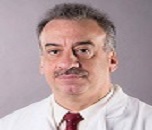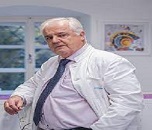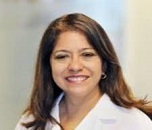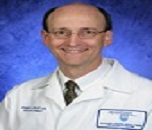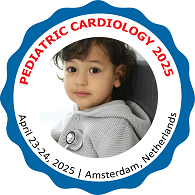Sessions & Tracks
Track 01-Pediatric cardiology
It is a medical specialty focusing on diagnosing and treating heart conditions in children, from newborns to adolescents. This field addresses congenital heart defects (present at birth) and acquired heart diseases (developed after birth).Pediatric cardiology is a dynamic and evolving field dedicated to addressing the unique heart health needs of children. The ultimate goal is to provide effective treatment, improve long-term outcomes, and support the healthy development of young patients.
Track 02-Pediatric Congenital Heart Disease
Pediatric Congenital Heart Disease refers to a range of structural abnormalities of the heart that are present at birth. These defects can affect the heart’s walls, valves, arteries, and veins, disrupting the normal flow of blood through the heart and potentially causing various health issues.
Symptoms of Congenital Heart Disease:
-
Cyanosis (bluish tint to the skin, lips, and fingernails)
-
Rapid breathing or shortness of breath
-
Poor feeding and slow weight gain
-
Fatigue and excessive sweating
-
Heart murmurs (abnormal heart sounds)
Types of Congenital Heart Defects :
-
Atrial Septal Defect (ASD)
-
Ventricular Septal Defect (VSD)
-
Tetralogy of Fallot (TOF)
-
Patent Ductus Arteriosus (PDA)
-
Coarctation of the Aorta
Track 03- Pediatric stroke
Pediatric Stroke is a medical condition where there is a disruption of blood flow to a part of a child's brain, leading to brain cell damage. Though less common in children than adults, strokes in children can have significant long-term impacts on health and development.
Types of Pediatric Stroke
-
Ischemic Stroke
-
Hemorrhagic Stroke
-
Perinatal Stroke
Symptoms of Pediatric Stroke
-
Sudden Weakness or Paralysis: Typically on one side of the body.
-
Difficulty Speaking or Understanding Speech: Sudden confusion or trouble speaking.
-
Vision Problems: Sudden vision loss or double vision.
-
Seizures: Especially in a child with no prior history of seizures.
-
Headache: Severe, sudden headache, often with vomiting.
-
Loss of Coordination: Trouble walking, dizziness, or loss of balance.
Pediatric stroke requires prompt diagnosis and intervention to minimize brain damage and maximize recovery. Multidisciplinary care, involving neurologists, cardiologists, hematologists, and rehabilitation specialists, is essential for optimal outcomes.
Track 04 - Pediatric Cardiac Tumors
Pediatric cardiac tumors are rare abnormal growths in the heart or heart-associated tissues in children. These tumors can be benign (non-cancerous) or malignant (cancerous), but the majority are benign. Despite their rarity, they can cause significant health issues due to their location and potential to interfere with the heart's function. Pediatric cardiac tumors, though rare, require a specialized, multidisciplinary approach for diagnosis, treatment, and follow-up to ensure the best possible outcomes for affected children.
Types of Pediatric Cardiac Tumors
-
Benign Tumors
-
Malignant Tumors
Track 05-Pediatric atherosclerosis
Pediatric atherosclerosis is a condition characterized by the early development of plaque buildup within the arteries of children and adolescents. Although typically associated with adults, the foundations of atherosclerosis can begin in childhood, and early intervention is crucial to prevent long-term cardiovascular diseases. Atherosclerosis is a process where fatty deposits, cholesterol, calcium, and other substances accumulate on the inner walls of arteries, forming plaques. These plaques can narrow and stiffen the arteries, reducing blood flow and potentially leading to serious cardiovascular events like heart attacks and strokes.
Pediatric atherosclerosis is often asymptomatic in its early stages. However, signs and symptoms can develop as the condition progresses Chest Pain (Angina), Shortness of Breath, Fatigue, and Hypertension. Pediatric atherosclerosis, although less common than in adults, is a critical area of focus for preventing future cardiovascular diseases. Early detection, lifestyle modifications, and proactive management of risk factors are essential to ensuring long-term cardiovascular health in children.
Track 06-Pediatric pericarditis
Pediatric pericarditis is an inflammation of the pericardium, the thin, double-layered sac surrounding the heart. This condition can cause chest pain and other symptoms in children and requires prompt diagnosis and treatment to prevent complications.
Symptoms of Pediatric Pericarditis :
-
Chest Pain: Sharp, stabbing pain that can worsen with deep breaths or lying down and improve with sitting up and leaning forward.
-
Fever: Often accompanies infectious causes.
-
Pericardial Friction Rub: A scratchy or squeaky sound heard with a stethoscope.
-
Shortness of Breath: Due to fluid accumulation around the heart (pericardial effusion).
-
Fatigue and General Malaise: Non-specific symptoms that may be present.
Pediatric pericarditis while often treatable, requires careful evaluation and management to prevent complications and ensure a full recovery. A multidisciplinary approach involving pediatricians, cardiologists, and other specialists is essential for optimal care.
Track 07-Pediatric Rheumatic Heart Disease
Pediatric rheumatic heart disease (RHD) is a chronic condition resulting from acute rheumatic fever (ARF), an inflammatory disease that can develop after a Group A Streptococcal (GAS) throat infection. RHD primarily affects children in developing countries and is a significant cause of morbidity and mortality.
Causes and Pathophysiology
-
Acute Rheumatic Fever (ARF)
-
Progression to Rheumatic Heart Disease
Pediatric rheumatic heart disease remains a significant health concern, particularly in resource-limited settings. Early detection, effective treatment of GAS infections, and long-term prevention strategies are crucial for reducing the burden of this preventable disease.
Track 08-Pediatric Pulmonary Atresia
Pediatric pulmonary atresia is a congenital heart defect where the pulmonary valve, which allows blood to flow from the right ventricle to the lungs, does not form properly. This condition results in an obstruction of blood flow to the lungs, leading to severe hypoxemia (low blood oxygen levels) and requires prompt medical attention.
Types of Pulmonary Atresia
Pulmonary Atresia with Intact Ventricular Septum (PA/IVS)
Pulmonary Atresia with Ventricular Septal Defect (PA/VSD)
Symptoms
-
Cyanosis: Bluish discoloration of the skin and mucous membranes due to low oxygen levels.
-
Difficulty Breathing: Rapid or labored breathing, especially during feeding or exertion.
-
Poor Feeding and Weight Gain: Infants may have difficulty feeding and fail to gain weight appropriately.
-
Fatigue: Lethargy and reduced activity levels.
-
Heart Murmur: Abnormal heart sounds detected during a physical examination.
Pediatric pulmonary atresia, though a serious congenital heart defect, can be effectively managed with early diagnosis, timely medical and surgical interventions, and regular follow-up care. Advances in medical technology and surgical techniques continue to improve outcomes for affected children.
Track 09 -Pediatric heart murmurs
Pediatric heart murmurs are sounds made by turbulent blood flow within or near the heart, heard through a stethoscope during a physical examination. They are relatively common in children and can be either innocent (harmless) or indicative of underlying heart conditions.
Types of Pediatric Heart Murmurs
Innocent (Functional) Murmurs
Pathologic Murmurs
Causes of Heart Murmurs
Innocent Murmurs
Pathologic Murmurs
Pediatric heart murmurs , whether innocent or pathologic, require careful evaluation to determine the appropriate course of action. Innocent murmurs are generally harmless, while pathologic murmurs may indicate underlying heart conditions needing further investigation and treatment. Regular monitoring and follow-up care are crucial for ensuring the best outcomes for affected children.
Track 10-Pediatric cardiac arrhythmias
Pediatric cardiac arrhythmias are irregularities in the heart's rhythm that can occur in infants, children, and adolescents. These arrhythmias can range from benign to life-threatening and may affect the heart's ability to pump blood effectively. Accurate diagnosis and appropriate management are essential for maintaining heart health and overall well-being.
Types of Pediatric Cardiac Arrhythmias
-
Supraventricular Arrhythmias (SVTs)
-
Ventricular Arrhythmias
-
Bradyarrhythmias
-
Long QT Syndrome
-
Pre-excitation Syndromes
Pediatric cardiac arrhythmias require careful evaluation and management to ensure the best outcomes for affected children. With advances in diagnostic and therapeutic techniques, many arrhythmias can be effectively managed, allowing children to lead healthy and active lives.
Track 11-Pediatric Cardiac Surgery
Pediatric cardiac surgery involves surgical procedures to correct congenital and acquired heart defects in children. The goal is to restore normal heart function, improve quality of life, and manage or prevent complications associated with heart conditions.
Types of Pediatric Cardiac Surgery
-
Congenital Heart Defect Repairs
-
Complex Congenital Repairs
-
Acquired Heart Condition Surgeries
-
Device Implantation
Pediatric cardiac surgery is a highly specialized field that requires a multidisciplinary approach to manage complex congenital and acquired heart conditions. With advances in surgical techniques and technologies, many children with heart defects can achieve excellent outcomes and lead healthy lives.
Track 12-Heart Valve Disease
Heart valve disease refers to conditions affecting one or more of the four heart valves: the aortic, mitral, pulmonary, and tricuspid valves. These valves are crucial for maintaining proper blood flow through the heart and into the lungs and body. Valve disease can disrupt this flow, leading to a range of symptoms and complications. Heart valve disease requires careful management to prevent complications and maintain heart function. With advancements in diagnostic and treatment technologies, many individuals with heart valve disease can achieve improved outcomes and quality of life.
Track 13-Tetralogy of Fallot (ToF)
Tetralogy of Fallot (ToF) is a congenital heart defect that presents with a combination of four specific cardiac abnormalities. It is one of the most common cyanotic congenital heart defects and is usually diagnosed in infancy or early childhood. The condition leads to reduced oxygenated blood reaching the body, resulting in cyanosis (a bluish tint to the skin). Tetralogy of Fallot is a serious but treatable congenital heart defect. With early diagnosis and appropriate management, many children with ToF can achieve good outcomes and lead healthy lives.
Track 14-Fetal cardiology
Fetal cardiology is a subspecialty within pediatric cardiology that focuses on diagnosing and managing heart conditions in unborn babies. It involves the use of advanced imaging techniques and diagnostic tools to assess the heart's structure and function before birth. Early detection and intervention are crucial for improving outcomes in infants with congenital heart defects. Fetal cardiology is a crucial field for the early detection and management of congenital heart defects. By utilizing advanced imaging techniques and providing early interventions, healthcare providers can improve outcomes for affected infants and support families through the process. Early diagnosis and coordinated care are essential for managing congenital heart conditions and ensuring the best possible outcomes for children with heart disease.
Track 15-Catheter-based valve implantation
Catheter-based valve implantation is a minimally invasive procedure used to replace or repair heart valves using catheter-based techniques rather than traditional open-heart surgery. This approach is often used for patients who are at high risk for conventional surgery due to age, comorbidities, or other factors. It is most commonly performed for aortic and mitral valve conditions. Catheter-based valve implantation is a significant advancement in cardiac care, offering a less invasive alternative to traditional valve surgery. It provides an effective option for many patients with heart valve disease, particularly those who are high-risk surgical candidates.
Track 16-Pediatric angioplasty
Pediatric angioplasty is a minimally invasive procedure used to treat narrowed or blocked blood vessels in children. It is primarily employed to address congenital or acquired vascular conditions and is often performed in the context of congenital heart defects or other vascular anomalies. Pediatric angioplasty is a valuable tool for treating various vascular conditions in children. It offers a less invasive alternative to open surgical procedures and can significantly improve blood flow and symptoms. With ongoing advancements in technology and techniques, pediatric angioplasty continues to evolve, providing better outcomes and quality of life for young patients with vascular abnormalities.
Track 17-Pediatric coronary thrombectomy
Pediatric coronary thrombectomy is a procedure used to remove blood clots (thrombi) from the coronary arteries in children. Although less common than in adults, it is performed in specific scenarios where a clot obstructs blood flow in the coronary arteries, potentially leading to significant heart complications. Pediatric coronary thrombectomy is a specialized procedure aimed at treating blood clots in the coronary arteries of children. While less common than in adults, it is a critical intervention in specific situations where coronary artery occlusion poses a significant risk. Advances in technology and techniques continue to improve the safety and effectiveness of this procedure, offering better outcomes for affected children.
Track 18-Congenital heart defect correction in Pediatrics
Congenital heart defect correction in pediatrics involves a range of surgical and non-surgical interventions aimed at treating heart abnormalities present from birth. These defects can vary widely in complexity, from simple conditions that may resolve on their own to complex anomalies requiring intricate surgical repairs. The goal of correction is to restore normal heart function, improve blood flow, and enhance the child’s quality of life.
